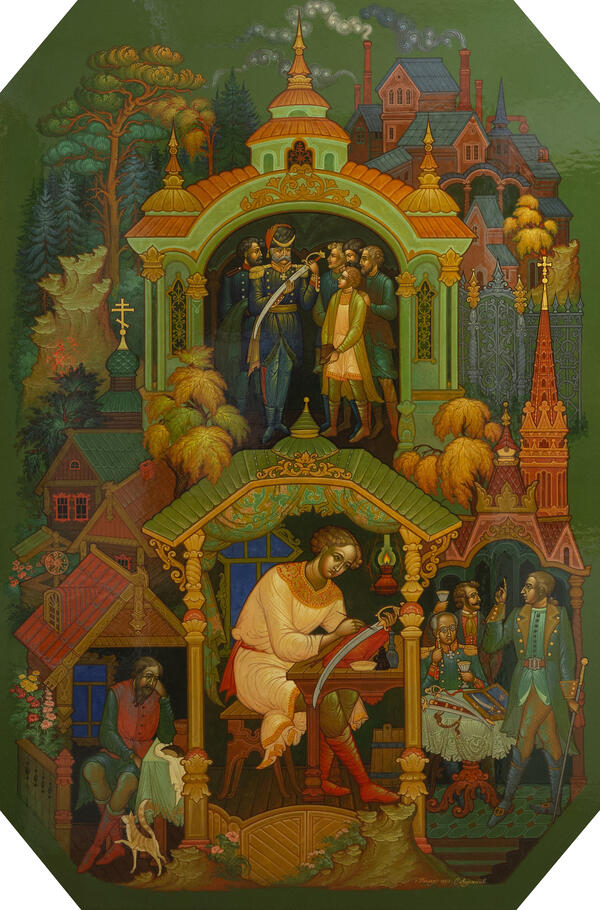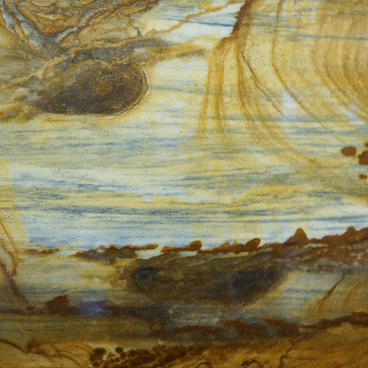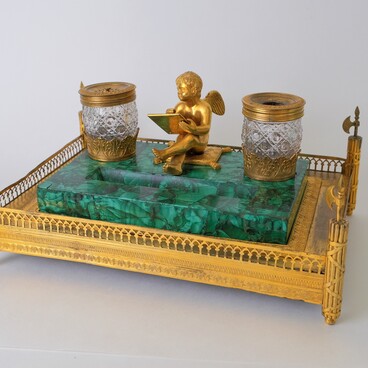Pavel Bazhov’s fairy tale “Ivanko Krylatko” (Ivan the Wingy) was first published in the almanac “Uralsky Sovremennik” (“Ural Contemporary”) in 1942. It was published with the subtitle “From the Ural Tales about the Germans”.
The German theme first appeared in Bazhov’s works shortly before the Great Patriotic War. In 1939, he wrote the fairy tale “Two Lizards”, in March 1941 — “Tayutka’s mirror”. Two years later, the collection “Tales about the Germans” was published in Sverdlovsk. It consisted of eight works, including “Ivanko Krylatko”.
Unlike many of Bazhov’s other fairy tales, there were no fantastic events, or supernatural characters in this story. The action unfolded at the Zlatoust plant — one of the oldest enterprises in the Southern Urals. Since 1815, a factory was opened at the plant. It produced edged weapons, as well as, among other things, richly decorated honorary sabers with gilded engravings on the blades.
The hero of the tale was a young engraver Ivanko, who was offered to compete in blade decoration with a German master, nicknamed Fuiko Shtof. The role of the “judge” in this competition was played by a general from the imperial retinue, who fought in the war with Napoleon. He highly praised the blade with winged horses, on which Ivanko worked,
The German theme first appeared in Bazhov’s works shortly before the Great Patriotic War. In 1939, he wrote the fairy tale “Two Lizards”, in March 1941 — “Tayutka’s mirror”. Two years later, the collection “Tales about the Germans” was published in Sverdlovsk. It consisted of eight works, including “Ivanko Krylatko”.
Unlike many of Bazhov’s other fairy tales, there were no fantastic events, or supernatural characters in this story. The action unfolded at the Zlatoust plant — one of the oldest enterprises in the Southern Urals. Since 1815, a factory was opened at the plant. It produced edged weapons, as well as, among other things, richly decorated honorary sabers with gilded engravings on the blades.
The hero of the tale was a young engraver Ivanko, who was offered to compete in blade decoration with a German master, nicknamed Fuiko Shtof. The role of the “judge” in this competition was played by a general from the imperial retinue, who fought in the war with Napoleon. He highly praised the blade with winged horses, on which Ivanko worked,



